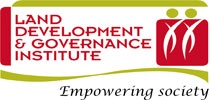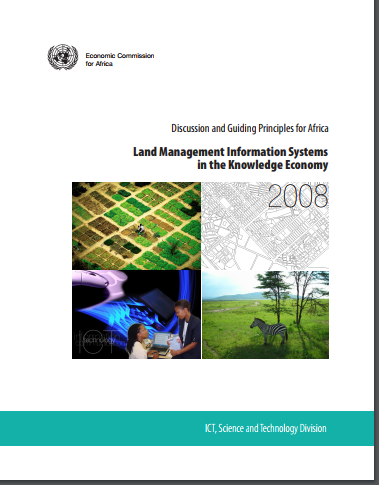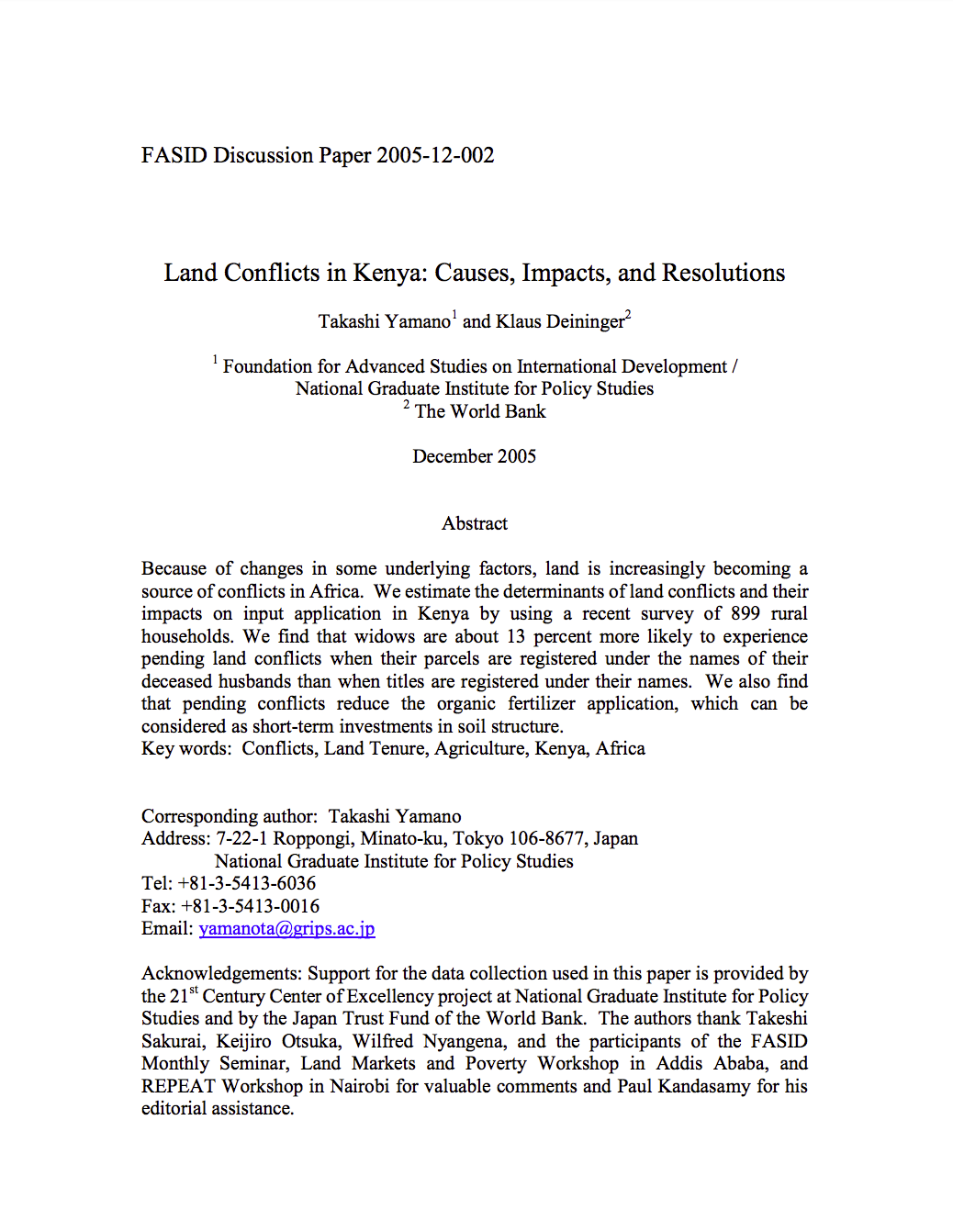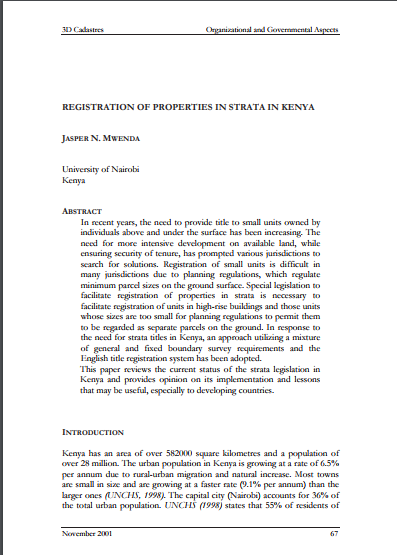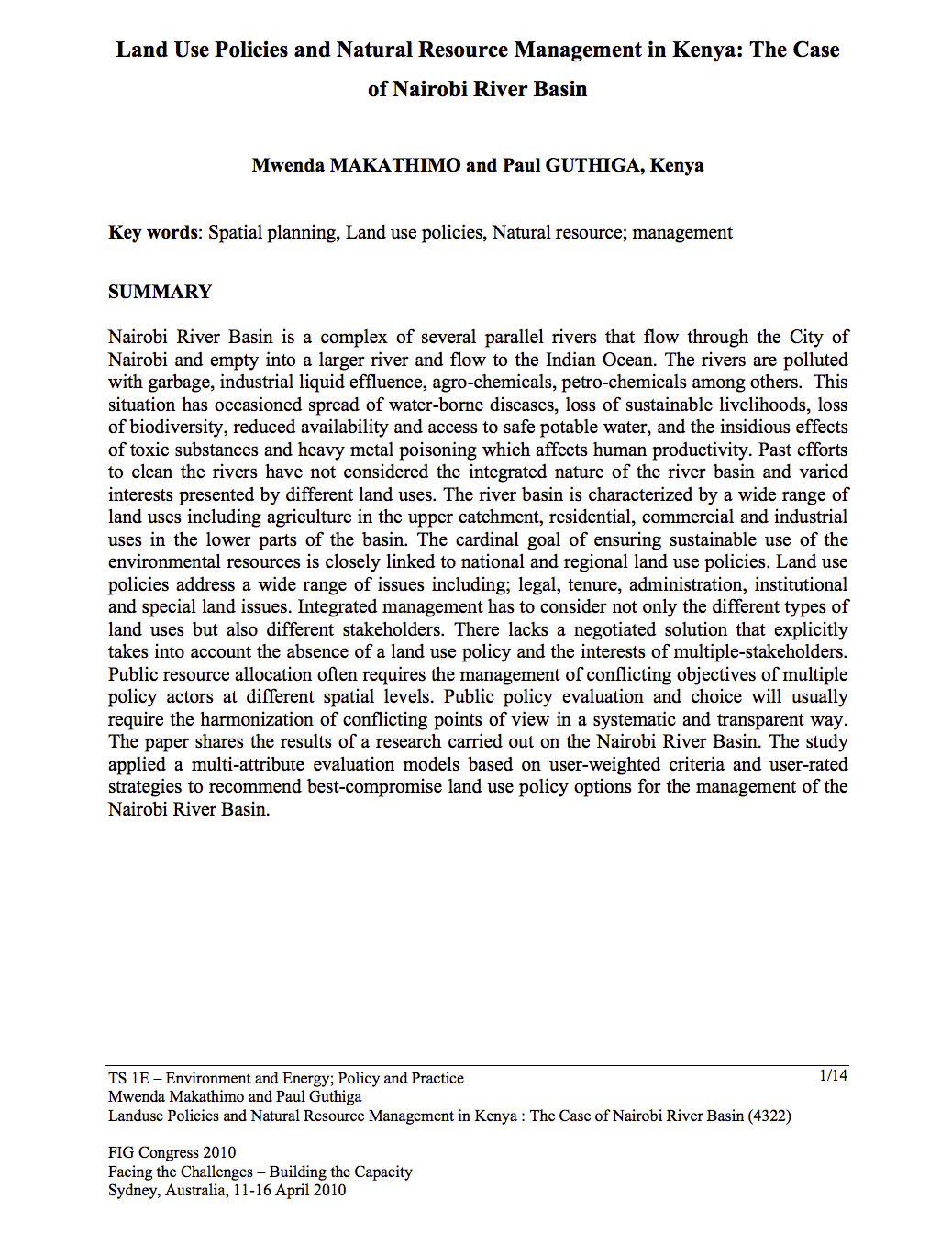Focal point
Location
Land Development and Governance Institute
MISSION: To contribute to improved livelihoods through offering a bridge between communities, stakeholders and policy makers in the promotion of equitable access and sustainable management of land and natural resources.
VISION: To become a centre of excellence in promoting the application of appropriate land policies, laws and management practices by empowering society through innovative and knowledge based advocacy and capacity building in Kenya and the region. LDGI values of Integrity, Trust and Professionalism influence the way we work every day and everywhere.
Members:
Resources
Displaying 66 - 70 of 73Land Management Information Systems in the Knowledge Economy
The economies of most African countries rely heavily on agriculture and other land and land-based activities such as tourism, mining and livestock production. Indeed, these are the core activities through which African countries participate in the global economy. Moreover, land is key to food security and the social-cultural needs of most communities in Africa. It has also been established that the performance of most sectors of the economies of African countries is indeed tied to that of the land sector.
Land Conflicts in Kenya: Causes, Impacts, and Resolutions
Because of changes in some underlying factors, land is increasingly becoming a source of conflicts in Africa. We estimate the determinants of land conflicts and their impacts on input application in Kenya by using a recent survey of 899 rural households. We find that widows are about 13 percent more likely to experience pending land conflicts when their parcels are registered under the names of their deceased husbands than when titles are registered under their names.
REGISTRATION OF PROPERTIES IN STRATA IN KENYA
In recent years, the need to provide title to small units owned by individuals above and under the surface has been increasing. The need for more intensive development on available land, while ensuring security of tenure, has prompted various jurisdictions to search for solutions. Registration of small units is difficult in many jurisdictions due to planning regulations, which regulate minimum parcel sizes on the ground surface.
Cadastral Systems and their Impact on Land Administration in Kenya
The mandate of the Kenya Government in its objective to achieve sustainable development is to reduce poverty by half by 2015 and transform the country into a newly industrailized nation by the year 2020. This paper reviews the cadastral systems that have been formulated and implemented in Kenya ; the different concepts and techniques used in the preparation of cadastral survey plans and maps; and the impact of the cadastre as a source of spatial data in support of land administration processes.
Provision of Integrated Life-saving Protection Response to Drought -Affected Population in Baidoa;Berdale, Bur
Objectives
In response the growing the humanitarian needs in the country due to the devastating drought situation SOS CVS is proposing an integrated CP, GBV and HLP interventions with aim of addressing the acute protection needs of the affected populations in Baidoa, Berdale, Burhakaba and Qansax Dheere in Bay region. SOS CVs will primarily target newly displaced IDPs including children at risk of abuse, violence, exploitation and neglect including UASC vulnerable women and girls with heightened GBV risk including GBV survivors and supporting IDP communities with insecure land tenures. The project will target the following IDP camps ()Balad amar, Bilal, Buulo jay, Buulo Tugeer, Edaan Qaboobe and Hagaray IDP camps in Baidoa, Aray, Holwadag, Masusow and Waberi in Burhakaba and All Xamdu, Badbaado, Bakaro, Barwaqo, Bulsho and Camp Eyle In Bardel and Busle, Buulo Abag and Maanyow IDp camps in Qasaxdhere. The main objective of the proposed integrated protection project is to address holistically the acute protection needs by providing prevention and responsive interventions. The integrated protection response is designed to improve the protection of the target children, girls and women from abuse, violence and exploitation through provision of CP /GBV comprehensive case management support including rapid identification, tracing and family reunification services for those at risk of family separations, GBV survivor centered services, PSS/PFA services. SOS CV will engage with the authority and community in secure land for the IDPs in Baidoa. SOS CV will be strengthening CM systems by strengthening the capacity of the frontline CM staff, facilitate service mapping specially newly established IDP camps and updating of referral pathways. SOS CV will closely be working with GBV and CP state-level coordinators and partners to ensure coherent response to protection needs of the populations. SOS will scale-up the provision of case management services by deploying trained social workers in sites the new IDPs are settling into as the needs are high in those sites, a total 300 children will be targeted for the CM. SOS CV will support the arrangement and placement of 200 UC in interim care. and will provide support during the care arrangement. SOS CV will initiate family tracing and reunification exercise for all UASC using the CPMIS + and CM SOPs. The project will provide PSS support to 4000 children such as sports activities, indoor games and other interactive plays, counselling services and life-skills sessions. Existing CFS will be supported with additional resources including maintenance and small rehabilitations as deemed necessary. IDP sites without no existing CFS will have mobile CFS team who provide PSS activities within the camp. The project will support two existing CFS in Baidoa and will establish two mobile CFS Burhakaba and Berdale. Each CFS will have 2 animators and 1 social worker while CP officer will have the overall supervision of the work. The two static CFS have disaggregated WASH facilities with hand washing standing. 4 recreational kits will be procured for PSS programs The project will support IDPs with land insecurity by verifying land ownership, creating conducive environment for dialogue between land owners and community by facilitating access to land, supporting and facilitate proper agreement between the stakeholders including the development and reviews of the land tenure documents. The interventions will help new IDPs have secured and agreed land tenures. The proposed interventions will be reinforced and strengthen the protection of the drought affected populations and will significantly contribute in reduction of the protection risks increased safety and community wellbeing in the midst of the drought condition. Total 16 IDP sites will be supported with HLP services

